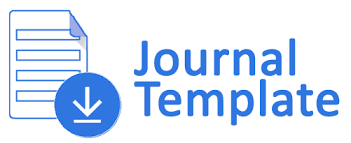Peer Review Process
ELL : English Education, Linguistic and Literature Journal, a double-blind peer-reviewed journal, is a platform for researchers, scholars, and practitioners in the field of Teaching and Learning English, Linguistics, Education Development for EFL, to publish and disseminate their original research and studies. Published biannually and indexed at various national and international indexing databases, the journal aims to promote knowledge-building and problem-solving in the field and to make scientific works in relevant research areas accessible to the public. The journal has been published online by the Postgraduate Program of Ttadris Bahasa Inggris, UIN Sultan Maulana Hasanuddin Banten. The primary scope and focus of the journal include the following areas: Teaching English as Foreign Language, English Applied Linguistics, English Language Teaching and Learning, English Language Teachers' Training and Education, and English and Second Language Acquisition.
Publication of articles in Loquen: English Studies Journal is dependent solely on scientific validity and coherence as judged by our editors and/or peer reviewers, who will also assess whether the writing is comprehensible and whether the work represents a useful contribution to the field. ELL JOURNAL acknowledged the effort and suggestions made by its reviewers.
Initial evaluation of manuscripts
The Editor will first evaluate all manuscripts submitted at a maximum of 3 weeks' time. Although rare, yet it is entirely feasible for an exceptional manuscript to be accepted at this stage. Those rejected at this stage are insufficiently original, have serious scientific flaws, or are outside the aims and scope of the ELL JOURNAL. Those that meet the minimum criteria are passed on to expert reviewers for review. It usually took up to 8 weeks.
Type of peer review
Submitted manuscripts will generally be reviewed by two to three experts who will be asked to evaluate whether the manuscript is scientifically sound and coherent, whether it duplicates the already published works, and whether or not the manuscript is sufficiently clear for publication. The method is a blind peer review.
Review reports
Reviewers are asked to evaluate whether the manuscript:
- Is original by stating the objectives and gap clearly
- Is methodologically sound
- Follows appropriate ethical guidelines
- Has results/findings which are clearly presented and support the conclusions
- Correctly references previous relevant work
- Reviewers are not expected to correct or copyedit manuscripts. Language correction is not part of the peer-review process.
Decision
Reviewers advise the editor, who is responsible for the final decision to accept or reject the article. The Editors will reach a decision based on these reports and, where necessary, they will consult with members of the Editorial Board. Editor’s decision is final.
Becoming a Reviewer
If you are not currently a reviewer for ELL JOURNAL but would like to be added to the list of reviewers, please contact us. The benefits of reviewing for ELL JOURNAL include the opportunity to see and evaluate the latest work in the related research area at an early stage, and to be acknowledged in our list of reviewers. You may also be able to cite your work for ELL JOURNAL as part of your professional development requirements. ELL JOURNAL 's reviewers are volunteers who contribute their expertise to the science, thus no financial payments are made.






